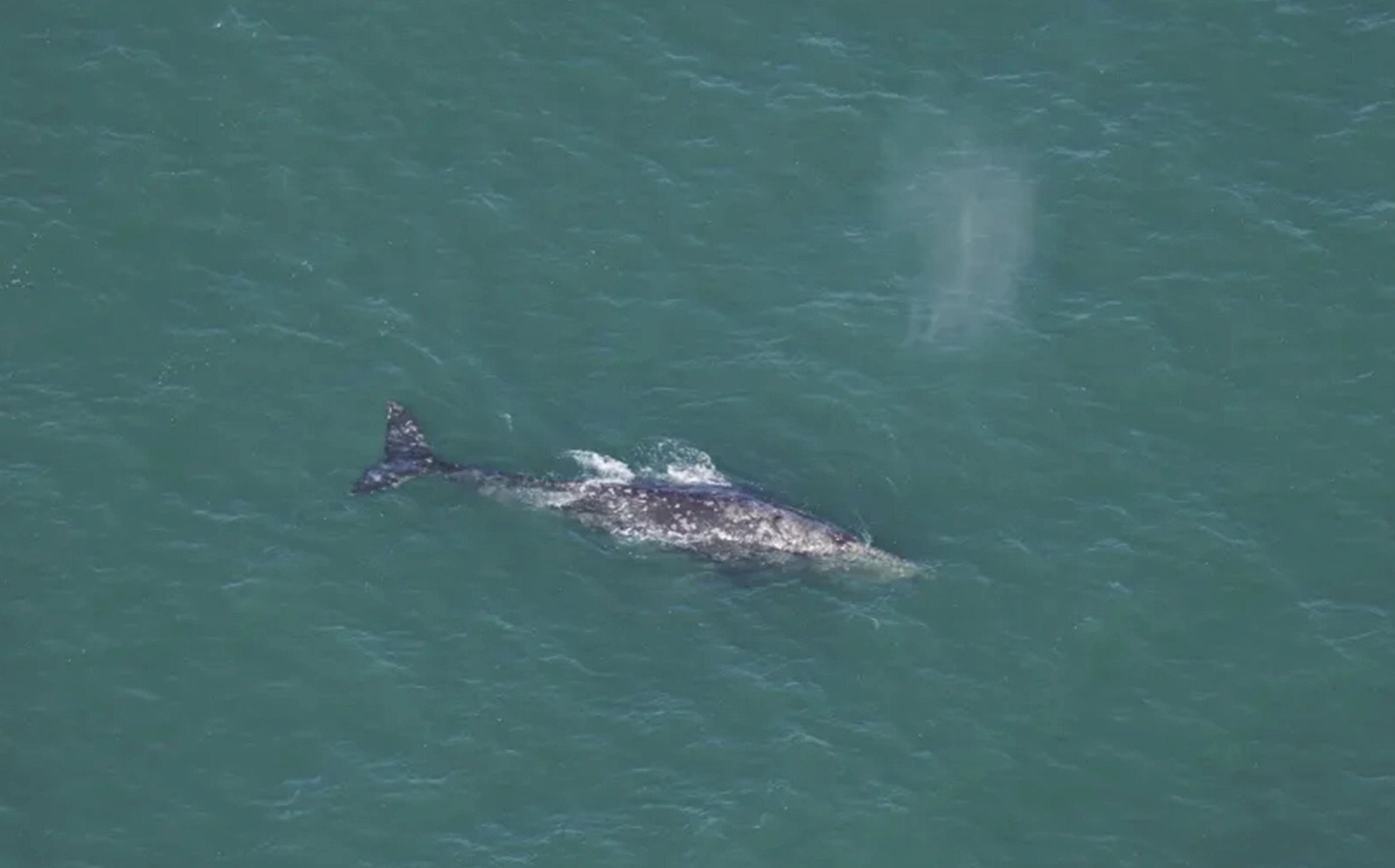
Gray whales disappeared from the Atlantic in the 18th century, but there have been five sightings in the Atlantic and Mediterranean over the past 15 years, according to the New England Aquarium. Researchers who found the whale off the coast of Massachusetts said they were initially skeptical, but after circling the area for 45 minutes, they took photos that confirmed it was indeed a gray whale.
Scientists say they were delighted to see the animal, but its presence is likely related to global warming. The Northwest Passage, which connects the Atlantic and Pacific oceans via the Canadian Arctic, has been ice-free in recent years in the summer. That has allowed gray whales to travel through the passage in the summer when it would normally be blocked.
The animal's appearance off New England serves as "a reminder of how quickly marine species are responding to climate change," said Orla O'Brien, a research scientist with the Anderson Cabot Center for Marine Life at the New England Aquarium.
Gray whales were hunted to near extinction during the era of commercial whaling. Today, the whales have recovered to the point where they are considered “least concern” by the International Union for Conservation of Nature. They can be identified by their lack of dorsal fins and their mottled appearance, which makes them very different from the more common New England whales, such as humpbacks and minke whales. They also sound very different – while humpbacks are known for their haunting songs, gray whales make gurgles and grunts.
Source


![[Photo] Panorama of the Opening Ceremony of the 43rd Nhan Dan Newspaper National Table Tennis Championship](https://vphoto.vietnam.vn/thumb/1200x675/vietnam/resource/IMAGE/2025/5/19/5e22950340b941309280448198bcf1d9)
![[Photo] President Luong Cuong presents the 40-year Party membership badge to Chief of the Office of the President Le Khanh Hai](https://vphoto.vietnam.vn/thumb/1200x675/vietnam/resource/IMAGE/2025/5/19/a22bc55dd7bf4a2ab7e3958d32282c15)


![[Photo] General Secretary To Lam attends the conference to review 10 years of implementing Directive No. 05 of the Politburo and evaluate the results of implementing Regulation No. 09 of the Central Public Security Party Committee.](https://vphoto.vietnam.vn/thumb/1200x675/vietnam/resource/IMAGE/2025/5/19/2f44458c655a4403acd7929dbbfa5039)
![[Photo] Close-up of Tang Long Bridge, Thu Duc City after repairing rutting](https://vphoto.vietnam.vn/thumb/1200x675/vietnam/resource/IMAGE/2025/5/19/086736d9d11f43198f5bd8d78df9bd41)




























![[Photo] Prime Minister Pham Minh Chinh inspects the progress of the National Exhibition and Fair Center project](https://vphoto.vietnam.vn/thumb/1200x675/vietnam/resource/IMAGE/2025/5/19/35189ac8807140d897ad2b7d2583fbae)


























































![[VIDEO] - Enhancing the value of Quang Nam OCOP products through trade connections](https://vphoto.vietnam.vn/thumb/402x226/vietnam/resource/IMAGE/2025/5/17/5be5b5fff1f14914986fad159097a677)



Comment (0)